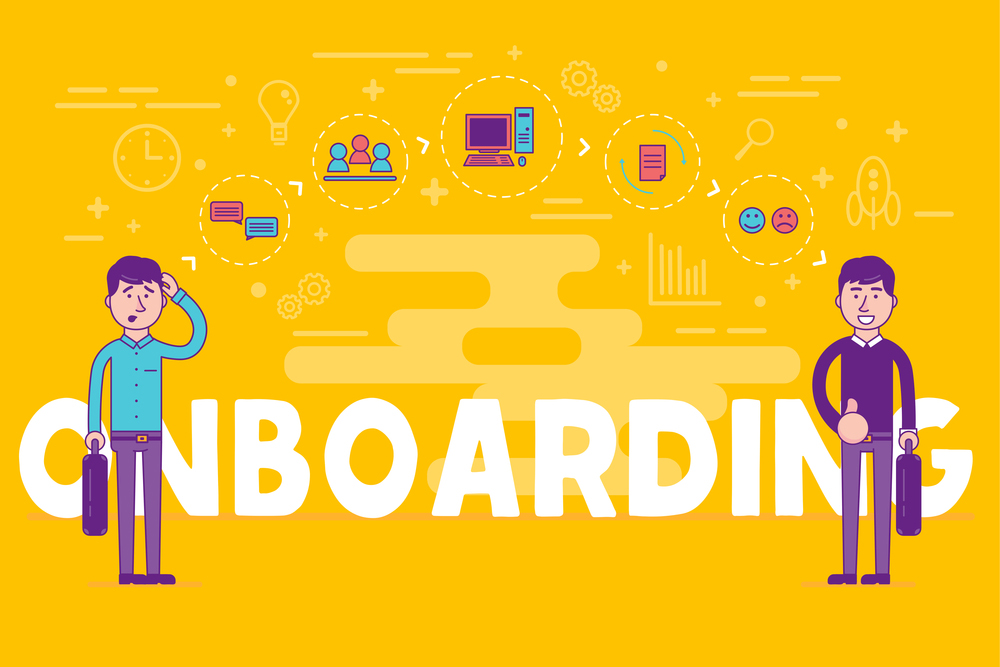Employees often have horror stories about a time they were basically left to “sink or swim” with a new employer, such as when they hadn’t been given appropriate training and onboarding after starting a new role. This can happen for a lot of reasons, especially if the employer needs someone to quickly get to full productivity and wants the employee to start working sooner rather than later.
Conversely, employees also often have stories about dreadful days spent being left alone with overwhelming information and feeling lost due to how stressful all of the information can be in the early stages.
It’s important to strike the right balance with onboarding, and many employers are finding that balance through digital onboarding.
Why You Should Onboard Through Technology
As the name implies, digital onboarding is when the typical onboarding process is available online, which can include the myriad forms new employees must complete and much of the training to be taken and company policies.
When implementing digital onboarding, employers often find they can spread the onboarding out over a longer period of time, which reduces overwhelm and provides longer training support for new employees.
Digital onboarding can also be critical for those remote employees who may not actually live anywhere near the company location where the onboarding typically takes place. With a growing percentage of the workforce working remotely, this has become an important consideration for employers.
Advantages to Digital Onboarding
Digital onboarding has many advantages over traditional onboarding processes. For example:
- It can reduce costs, as it requires less in-person training time and less time spent getting the information new employees need. It can also reduce the costs of paper and ink that would typically be used for materials.
- New employees can start working sooner, as they’re not spending their entire first day or their first few days filling out paperwork. Digital onboarding allows this process to be spread out, reducing overwhelm and allowing employees to get on-the-job training and experience quickly.
- Digital onboarding can be offered to new hires before they even step foot on-site. That said, bear in mind that many onboarding activities are considered work activities and will still need to be paid; this is something to consider before offering any onboarding that occurs before payroll has been set up for a new hire.
- It will ensure that the materials presented to each new employee are consistent because they are kept centrally located.
- It will ensure all new hires get the most current version of policies and forms, as the central location can easily be kept up to date rather than having copies in every hiring manager’s hands.
- Digital onboarding may make it easier to track which items a new employee has and has not completed, as they’re available online and can be tracked automatically instead of manually.
- Employees can complete the entire onboarding process at a pace that is preferable to them, within reason.
- It will ensure nothing is missed because checklists and confirmations can be built into the process.
- The digital onboarding process can be seamlessly integrated with other learning management software or HRIS the organization uses.
- It can provide reference materials for employees to use in the future.
- It can help the employer stay in compliance with all legally required forms.
Has your organization implemented partial or complete digital onboarding? Is it something you’re planning to do in the near future?
Learn how you can improve your onboarding experiences when you join Tess Fyalka, of O’Shea Builders, for the Workforce L&D session, “Onboarding: Building an Employee Experience Designed to Train, Engage, and Retain Straight Out of the Hiring Gate.” Workforce L&D will coincide with HR Comply and RecruitCon 2019 in Nashville, TN, on November 14-15, 2019. Click here to learn more or to register today!
Bridget Miller is a business consultant with a specialized MBA in International Economics and Management, which provides a unique perspective on business challenges. She’s been working in the corporate world for over 15 years, with experience across multiple diverse departments including HR, sales, marketing, IT, commercial development, and training.


